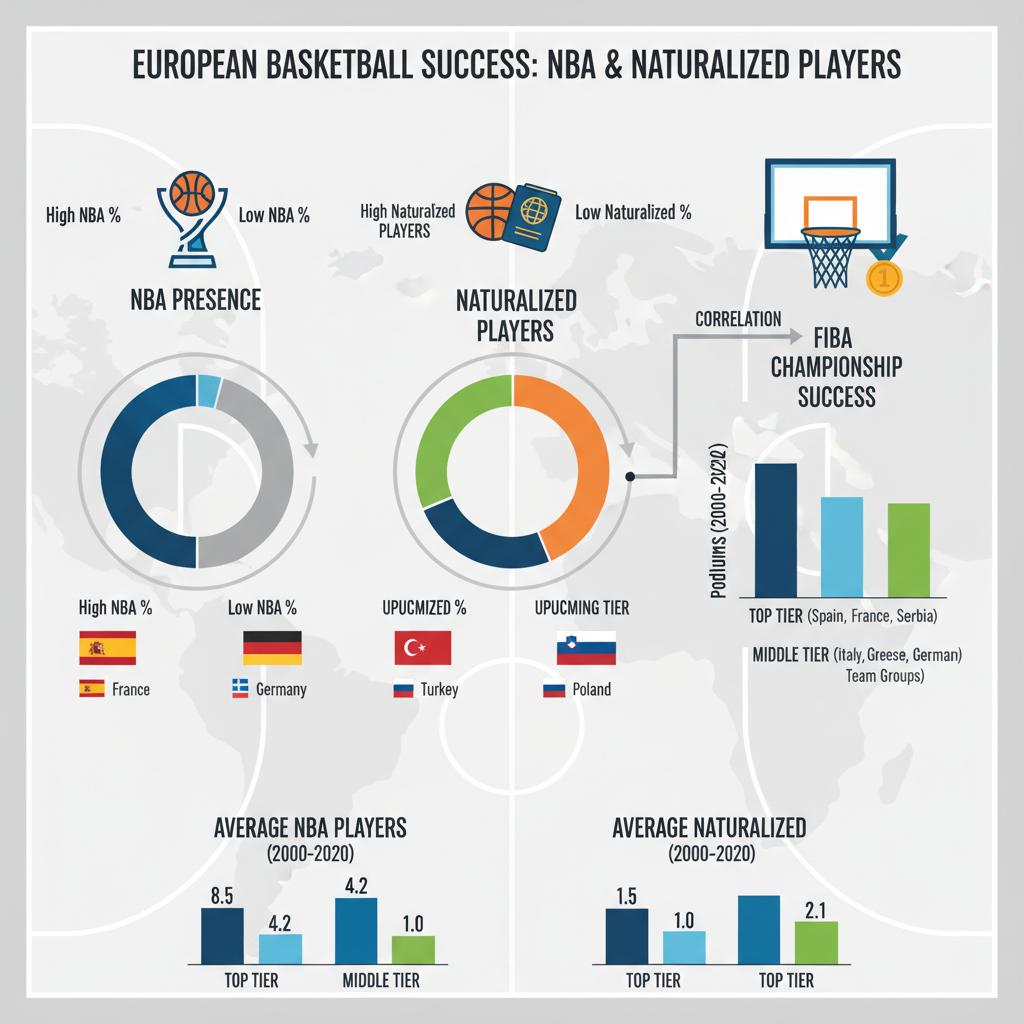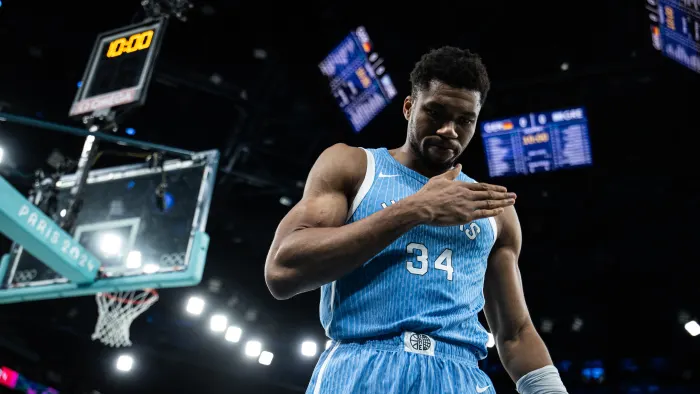As the FIBA EuroBasket 2025 tournament unfolds across Cyprus, Finland, Latvia, and Poland, basketball fans worldwide are witnessing a pivotal moment for one of the game’s greatest talents: Giannis Antetokounmpo. The “Greek Freak,” a two-time NBA MVP and champion with the Milwaukee Bucks, has long dominated the league but has yet to secure a major medal on the international stage with his home country. Greece’s last EuroBasket podium finish was a bronze in 2009, and while Giannis has led them to respectable showings—like a quarterfinal exit in 2022—the stars have never quite aligned for a breakthrough.
Fast forward to September 2025, and the landscape looks dramatically different. With the tournament already underway (as of September 1, Greece sits undefeated after strong wins over Cyprus and Georgia, including a 27-point outburst from Giannis against the latter), this could be the perfect storm for Greece to medal. Why? A combination of Giannis’ prime form, a solid supporting cast, and—crucially—weaknesses plaguing many of the traditional favorites. Several powerhouse teams are missing key stars due to injuries, fatigue from the 2024 Olympics and NBA seasons, or strategic rest ahead of the 2025-26 NBA campaign. This has opened up the field, making a medal not just possible but potentially “easy” for a Giannis-led Greece if they capitalize. They come first in their (let’s face it, very easy) first phase, then meet Israel and Latvia and presto! Quarterfinals. It is very doable and very likely.
Drawing from FIBA’s Smart Power Rankings and betting insights, Serbia tops the list, followed by Germany, France, and others like Lithuania, Slovenia, Turkey, Latvia, and Italy. Greece ranks fourth in those rankings, but with the absences hitting rivals hard, their path to the podium (top three) looks clearer than ever.
Serbia: The Undisputed Favorites, But Not Invincible
Serbia enters EuroBasket 2025 as the clear top dog, boasting odds of around +235 to win it all and holding the No. 1 spot in FIBA’s power rankings. Led by three-time NBA MVP Nikola Jokić of the Denver Nuggets, who is participating and already making waves, they have a stacked roster including Bogdan Bogdanović (Atlanta Hawks) and Nikola Milutinov. Their depth and chemistry make them a force—Jokić’s playmaking and scoring (he’s among the top players to watch) could carry them far.
But even Serbia isn’t without cracks this time. Jokić, fresh off a grueling NBA season and the 2024 Olympics (where Serbia earned silver), might face fatigue as the tournament progresses into its knockout stages ending September 14. Their overreliance on Jokić could be exploited if opponents like Greece force him into foul trouble or double-teams—something Giannis, with his defensive versatility, is uniquely equipped to handle. Historically, Serbia has dominated (runners-up in 2017), but in a field where other teams are depleted, any slip-up (e.g., injuries to supporting players like Vasilije Micić) could open the door. For Greece, avoiding Serbia until the finals might be key, but this isn’t the unbeatable juggernaut of past cycles.
As Serbia’s captain and all-time leading scorer, Bogdanović brings irreplaceable experience and clutch performance to the squad. His elite three-point shooting (often around 40-50% in international play), playmaking, and ability to create off the dribble complement Jokić’s interior dominance, forming a dynamic inside-out threat that opponents struggle to contain. Without him, Serbia’s offense becomes more predictable, relying heavily on Jokić, which could lead to fatigue for the superstar center or force less experienced players like Vasilije Micić or Ognjen Jaramaz into expanded roles they’re not fully prepared for. Defensively, his length and instincts help guard multiple positions, a loss that’s particularly felt against versatile wings from teams like Germany or Greece. Despite Nikola Jokić’s NBA dominance, the Basketball Federation of Serbia selected Bogdanović as the top player for the year, recognising his consistent international impact over Jokić’s occasional absences. His injury changes everything.
Germany: World Champs With Lingering Questions
As the reigning FIBA World Cup champions from 2023, Germany sits at No. 2 in the power rankings with odds around +650. Their core remains intact: Dennis Schröder (Brooklyn Nets), Franz Wagner (Orlando Magic), Moritz Wagner (Orlando Magic), and Daniel Theis (New Orleans Pelicans) are all suiting up, providing NBA-caliber talent across positions. Franz Wagner, in particular, ranks among the top NBA players at the tournament.
Yet, Germany is weaker than their 2023 squad due to the absence of some depth pieces and the toll of recent international play. The Wagner brothers and Schröder played heavy minutes in the 2024 Olympics (Germany exited in the quarters), and fatigue could set in during a condensed EuroBasket schedule. Moreover, their frontcourt lacks the dominant size to consistently counter superstars like Giannis or Jokić— Theis is solid but not elite. Pre-tournament predictions note Germany as a contender, but not the favorite, with some analysts questioning their ability to repeat without fresh legs. For Greece, this means a winnable matchup if they meet in the knockouts; Giannis’ athleticism could overwhelm Germany’s perimeter-oriented style.
France: A Powerhouse Gutted by Absences
France, bronze medalists at the 2024 Olympics and No. 3 in power rankings with +900 odds, would normally be a medal lock. But this edition is arguably their weakest in years, thanks to a slew of high-profile skips. Star center Victor Wembanyama (San Antonio Spurs) is out due to health concerns (a blood clot issue), Rudy Gobert (Minnesota Timberwolves) is resting after a long season and Olympics, Mathias Lessort is absent, and Evan Fournier is also missing. Even Vincent Poirier, another key big, is sidelined.
This leaves France’s frontcourt painfully thin—relying on players like Guerschon Yabusele and Nicolas Batum, who are talented but lack the rim protection and rebounding Gobert provides. Their perimeter game (with Isaïa Cordinier and others) is decent, but without their twin towers, they struggle against physical teams like Greece. Analysts have downgraded France significantly, with some predicting they might not even medal. For Giannis, this is a dream scenario: France’s weakened interior plays right into his slashing, dunking style, making a potential matchup a golden opportunity for Greece to advance.
Lithuania: Missing Their Anchor in the Paint
Lithuania, a perennial EuroBasket contender (No. 5 in rankings), thrives on tough, team-oriented play. They have Jonas Valančiūnas (Washington Wizards) anchoring the center spot, but the glaring absence is Domantas Sabonis (Sacramento Kings), who is skipping the tournament—likely due to rest after the Olympics and NBA commitments. Sabonis’ playmaking and scoring from the post were crucial in past runs (like their 2023 World Cup semis), and without him, Lithuania’s offense lacks fluidity.
Their guard play (Rokas Jokubaitis, etc.) is solid, but the team is vulnerable to elite bigs like Giannis, who could dominate the boards and paint. Previews highlight Lithuania as a dark horse, but the Sabonis void drops them from true favorite status. Greece, with Giannis’ brothers Thanasis and Kostas providing depth, has the physicality to exploit this—making Lithuania a beatable foe en route to a medal.
Slovenia: Doncic’s One-Man Show Amid Fatigue Concerns
Slovenia, powered by Luka Dončić (Dallas Mavericks), always punches above their weight—Dončić is No. 3 among top NBA players here. But with odds around +1200 or lower, they’re not top-tier favorites. Dončić, who slimmed down for the tournament, is fresh off a deep NBA Finals run and Olympics, raising fatigue risks—he’s already logged a historic triple-double early on.
The supporting cast (Vlatko Čančar, Mike Tobey) is serviceable but thin—Slovenia often relies on Dončić heroics, which can falter against balanced teams. If Greece draws them, Giannis’ defense could neutralize Luka, exposing Slovenia’s lack of depth. This vulnerability makes them less threatening than in 2017, when they won gold.
Other Contenders: Turkey, Latvia, Italy, and Spain’s Diminished Threats
- Turkey (No. 6): Led by Alperen Şengün (Houston Rockets), they’re rising but young and inconsistent. No major absences, but their inexperience could show in knockouts—Greece’s veteran presence (Thomas Walkup, Kostas Sloukas) gives them an edge.
- Latvia (No. 7): Kristaps Porziņģis (Atlanta Hawks? Wait, Boston Celtics) is a star, but Latvia’s overall roster lacks NBA depth. As a dark horse, they’re beatable if Porziņģis is contained.
- Italy (No. 8): Simone Fontecchio (Miami Heat) and Danilo Gallinari lead, but Donte DiVincenzo’s skip hurts their guard play. Inconsistent historically, they’re not a major roadblock. Case in point , Fontecchio was terrible against Greece and they lost.
- Spain: Once dominant, they’re in transition post-golden generation. With only Santi Aldama (Memphis Grizzlies) as a notable NBAer, they’re outside the top 8 and vulnerable.
Why This Equals Greece’s Perfect Opportunity
Greece’s roster, finalized with Giannis at the helm alongside his brothers, Walkup, and Sloukas, is built for success. In an easy Group C (with Cyprus, Georgia, Bosnia), they’ve already cruised to wins, preserving energy. The absences across Europe—over 9 noteworthy NBA players skipping, including Wembanyama and Gobert—have leveled the playing field like never before. While Serbia and Germany remain tough, the diluted competition means Greece can realistically aim for silver or bronze by navigating a softer bracket.
For Giannis this is the moment. Post-2024 Olympics fatigue has sidelined rivals, but he’s committed and dominant. If Greece medals, it’ll be a testament to seizing this wide-open window. Basketball purists, keep watching—history might be in the making. Not because Giannis has improved but because this year Greece has the easiest path to a medal.















